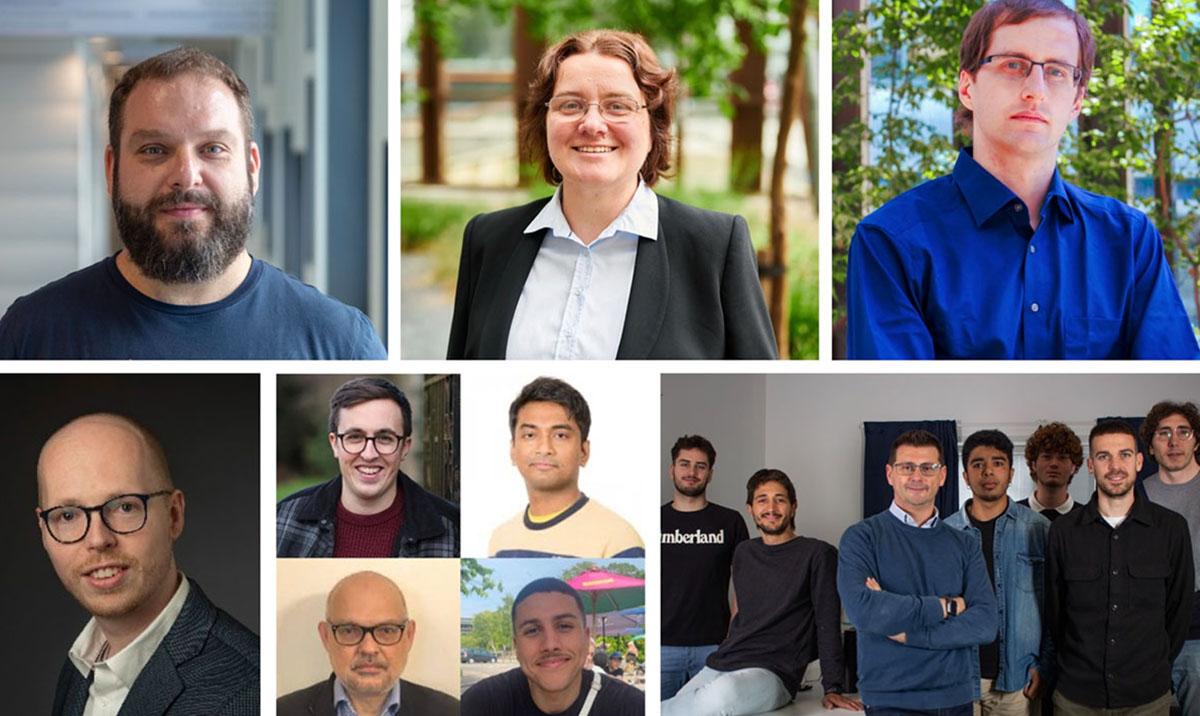Green DiSC: reducing the environmental impact of digital and computational research
3 September 2025
The Green DiSC scheme, which is pioneering sustainability in computational research, has awarded its first certifications.

A new sustainability certification scheme is allowing researchers to reduce the environmental impacts of their digital and computational research. Green DiSC is hosted by the Software Sustainability Institute, which is led by EPCC at the University of Edinburgh in partnership with the universities of Manchester and Southampton. It is supported by the University of Cambridge and UKRI.
While laboratory certification schemes have long helped laboratory researchers to reduce their environmental impacts, up to now there has been no equivalent scheme for the rapidly growing field of computational research. The need for this was clear in a context where high performance computing and AI are playing an increasingly central role in modern research.
The energy and environmental footprint of AI is increasingly a source of concern in the context of the climate emergency. On the research front, funders such as the Wellcome Trust and Cancer Research UK now require researchers to hold laboratory sustainability certifications to apply for funding.
A roadmap for sustainable research
Six teams from the UK and Europe have successfully completed the inaugural round of Bronze Certifications from the new Green DiSC certification scheme. The scheme is the first free and open access certification scheme for research sustainability. It is designed to empower researchers and organisations to mitigate the environmental impacts of their computational research.
In this first round, the scheme recognised four research groups for embedding sustainability in their practices, and two support teams for facilitating sustainable research across their organisations. From cancer research and genomics to data science, for the first time, computational researchers have been able to follow a roadmap for sustainable research. More than 25 organisations have already registered for the certification scheme and are working towards certification.
Dr Kirsty Pringle Project Manager, Software Sustainability Institute“Digital research has a growing environmental footprint, but there’s not a lot of guidance on how to reduce it. The Green DiSC certification gives researchers clear, practical steps to improve the sustainability of their work.”
Dr Loïc Lannelongue, Green DiSC Lead and Senior Researcher at the University of Cambridge: “It is wonderful to see the first round of certified teams after more than two years developing and testing Green DiSC. It is inspiring to see the research community stepping up and signaling that we cannot afford to ignore the environmental impacts of our digital research.”
Martin Farley, UKRI Associate Director of Environmental Sustainability Programmes said “We're incredibly excited to see the development of Green DiSC, as this programme addresses an area of increasing importance for us and the research sector. We look forward to supporting this work in the future.”
Bronze Certification awardees
- The Scientific Computing Team of The Institute of Cancer Research (United Kingdom) provides specialist comprehensive digital services to researchers at ICR, ensuring their research runs as efficiently as possible.
- The Green Labs Working Group of the University of Groningen (Netherlands), which started as a grassroots movement in 2021 to guide researchers on sustainable activity in laboratories, has grown to be a team and network of researchers, staff, students, and PIs.
- The Laboratory of Computational Genomics of the University of Pavia (Italy), which is focused on modelling inflammation as a key predictor of phenotype trajectories. Their laboratory mainly uses computational genomics methods and machine/deep learning.
- The Data Science Team of the Institute of Cancer Research (United Kingdom) covers informatics research including bioinformatics and computational biology, biostatistics, mathematical biology, in-silico medicinal chemistry, digital pathology, and computational physics.
- The Breast Cancer Research Data Science Team of the Institute of Cancer Research (United Kingdom) is a multidisciplinary team bringing together bioinformatics and statistical machine learning methods to identify therapeutic vulnerabilities and biomarkers of aggressive disease in breast cancer.
- The Digital Lab of the University of Groningen (Netherlands) aims to modernise the Computing Science programme’s teaching methods by designing, developing, and supporting tools that assists teachers with their computer lab teaching.
Next deadline
The next deadline to apply for certification is November 19, 2025. More information about Green DiSC and how to enrol is available on the Software Sustainability Institute website.
Links
For further information, email Dr Loïc Lannelongue, Green DiSC Lead, at loic@greendisc.org or info@greendisc.org.
Software Sustainability Institute (SSI): info@software.ac.uk
